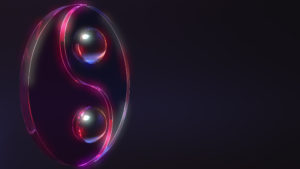
Everyone must walk his or her own path in life. While this is a sentiment that most are familiar with to a degree, it is the governing force behind the idea of the Tao. You may have heard this word before. Tao is a word that translates from traditional Chinese to mean “path.” It is also a word that comes up a great deal in most Chinese philosophy and art. It is important to understand that Tao is not a literal path like a road. It is a bit more of a metaphor.
In essence, the Tao is a pathway that guides a person through his or her own life based on personal experiences and greater understandings. This is a very simplified version of what the Tao is, but it is a decent place to begin for those with very little understanding of the concept. The trouble with understanding the Tao is that it has been written about in contradictory and confusing ways over the last few thousand years. To gain a bit of perspective, it may be useful to examine some core concepts.
Switching Up the Idea
As members of a society, most people adhere to specific rules. Some of these rules are obvious, such as the laws that govern the land. People know that if they break these rules, there will be consequences. There are also unspoken rules that have consequences in a society. For example, it could be considered in bad taste to wear a t-shirt and jeans to a funeral, and the consequence would be the comments that came from others who are present. Tao teachings come at societal rules from a multitude of perspectives.
Sun Tzu, a Chinese author who is best known for his work “The Art of War,” believed that the Tao helped rulers to maintain order over their people. Conversely, philosopher Chuang Tzu wrote about the Tao existing beyond the order and rules of society. These drastically different interpretations are common with Tao writings, and it makes sense as to why. Above all, the Tao is about an individual’s connection to and understanding of everything. Since people tend to have drastically different experiences and personalities, it makes sense that Tao teachings would vary as much.
Natural Order
While the individual’s interpretation of the Tao does hold significant weight in understanding it, there are other ways of approaching this concept. For many, studying the Tao is akin to studying the actual order of the universe. Plenty of those who study and follow the Tao do so to understand the natural workings of the world. The Tao is not a force to be worshipped or feared; it is merely the force that dictates the life. While this may seem abstract, it is a concept that can be learned with time and patience.
A word that is frequently used throughout Taoist texts is de. Since Tao teachings often discuss the individual and the natural order of the universe, the de is an individual who interacts with the world in a virtuous manner. The word itself can be difficult to translate directly, as it originated long ago in China, but it can be understood that de is a quality of those who have integrity, kindness, and intelligent wisdom.
A Long Road
To truly understand Tao, it is a good idea to explore some of the more accessible or popular books on the topic. Most people gravitate towards “Tao Te Ching” because it is an older book that has seen widespread use over the years. Still, a simpler enjoyment can be found in “The Tao of Pooh” by Benjamin Hoff. In this book, Hoff makes Taoism accessible to Westerners by utilizing characters from Winnie the Pooh to exhibit specific Taoist ideas.
There are many different ways to interpret your own path in life. Exploring the Tao through various texts that explore different or conflicting interpretations may help you to gain a more full and hearty understanding of this ancient belief.

